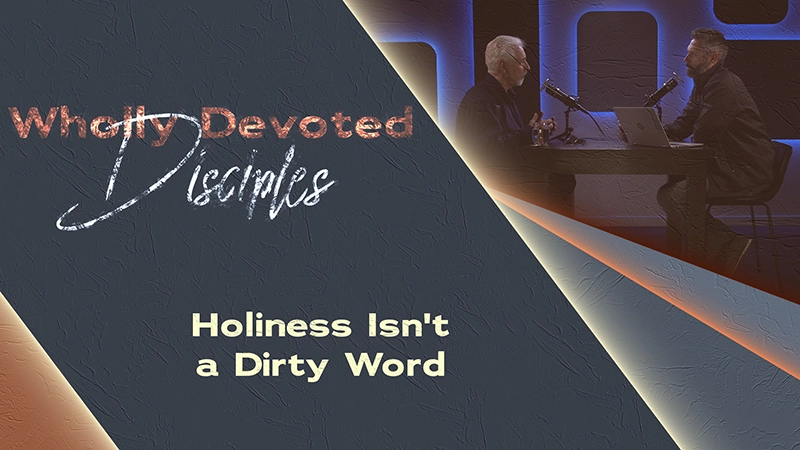
For the Struggling Christian Who's Tired of Faking It
In his previous post, Luke Gilkerson shared how the anonymity and accessibility of the Internet helped lead him into addiction and revealed who he really was and what he really wanted. Here's what he learned as he sought the radical change he desperately needed...
Performance is Empty
We need to be motivated to obedience, not to performance. These two are radically different activities, though they may look similar on the surface. Performance is when someone plays a part because it’s in the script, the written code, or the rules. Obedience is when someone submits and responds to another person.
There are many true followers of Christ who have developed the habit of performance: their lives are more about mimicking Christian social norms than they are about knowing God. Many Christians also suffer from acute double-mindedness: they sincerely seek to know God and yet simultaneously continue their pattern of outward performance. They feel the pull of the Spirit drawing them to Christ, but they also feel the pull of their sinful heart wanting to keep their “Christian” activities and convictions on the surface, in the realm of performance. These Christians are exposed for what they are when they have the opportunity to sin in secret.
Performance is merely another form of pride and control: we want to display Christian convictions so long as we don’t “sell out” to Jesus and become undying in our devotion to the living Christ. We enjoy the social benefits of a commitment to Christ, but we tell the Spirit, “This far and no farther. Deep down I want my life to be mine, not Yours.” This sin needs to be acknowledged, confessed to God and to our trusted Christian community, and hated as the evil it is.
That being said, real transformation will not happen simply because we have noticed that we are performing and not obeying. That acknowledgment is just the beginning, just the preparation for the real work that God will do.
Obedience is Responsive
For much of my Christian life I spent a good deal of my time trying to muster up the passion to obey God. I read about the lives of great saints, both in the Bible and in church history, and tried to mimic their passion and fervor. I measured my spirituality by how much positive, obedient emotion I could drum up within my heart. This, I believe, was motivated by godly devotion, but was nonetheless a wrong direction.
Obedience is a response. Even the English word “obey” comes from a Latin word for “listen.” Obedience is not something I should try to motivate by looking within myself, but something that I do as a response of looking to God, of listening to Him.
Our initial response to hearing the gospel should set the tone for the whole of our Christian lives, for a life of obedience, not of performance. When we first heard the Good News about Jesus, we understood that the offer of salvation was entirely based on something wonderful that God did, not something we do. With conviction of our sin and a delight in God’s love and power displayed in Jesus, we responded with faith. Thus, the rest of our lives are to follow this pattern: God reveals Himself; we respond.
Obedience is a response to a person, to the incredible God who has revealed Himself in Christ. For some of us, the word “obedience” is tainted in our minds, denoting a concept of cold or stoic action; but it is anything but all of that. Obedience is bringing a smile to the face of God, fully pleasing Him by growing in intimacy and knowledge of Him, patiently enduring in faith amidst the pressures of the world, and joyfully giving thanks at all times to the One who has delivered us from the domain of darkness (Colossians 1:9-14).
This is more than performance: this is the integrity of passion.
{{blog-bwalk="/blog-ads-storage"}}
Passion is God-Given
So what are we to do if we desire a life of obedience? We must not try to have a passion for God as much as we simply gaze upon God Himself and let that vision give us passion.
We must be as Moses on Mt. Sinai: we must have a hunger to see God’s glory (Exodus 33:18). We must thirst for the same vision of God that filled the mind of Isaiah in the temple (Isaiah 6:1-8). We must have the hunger of the Greeks who came to Jerusalem for Passover: “We want to see Jesus” (John 12:21). We must have the desire and discipline of Mary of Bethany, who only desired to sit at the feet of Jesus and hear from Him (Luke 10:39). We must behold the mysteries of who He is, especially as He is revealed in His incarnation, the cross, the resurrection, and His second coming.
We cannot obey whom we do not know: only in knowing the living Christ are we changed. Then we are freed, not to live a life of performance, which is what the book of Hebrews calls “dead works” (9:14); instead, we are freed to serve the living God. No longer will we need to be motivated by simply performing to Christian social norms, but we can be free to live out a life of love and devotion to the One who died for us and rose again (2 Corinthians 5:15), whether in public or in secret. Our Father, who sees in secret, is eager to reward the one who earnestly seeks Him (Matthew 6:4,6,18; Hebrews 11:6).
Look on Him whom you have pierced (Zechariah 12:10), look at Jesus, the founder and perfecter of our faith (Hebrews 12:2), and gaze upon the crucified Christ, now risen, and search the mystery of His justice and love.
















